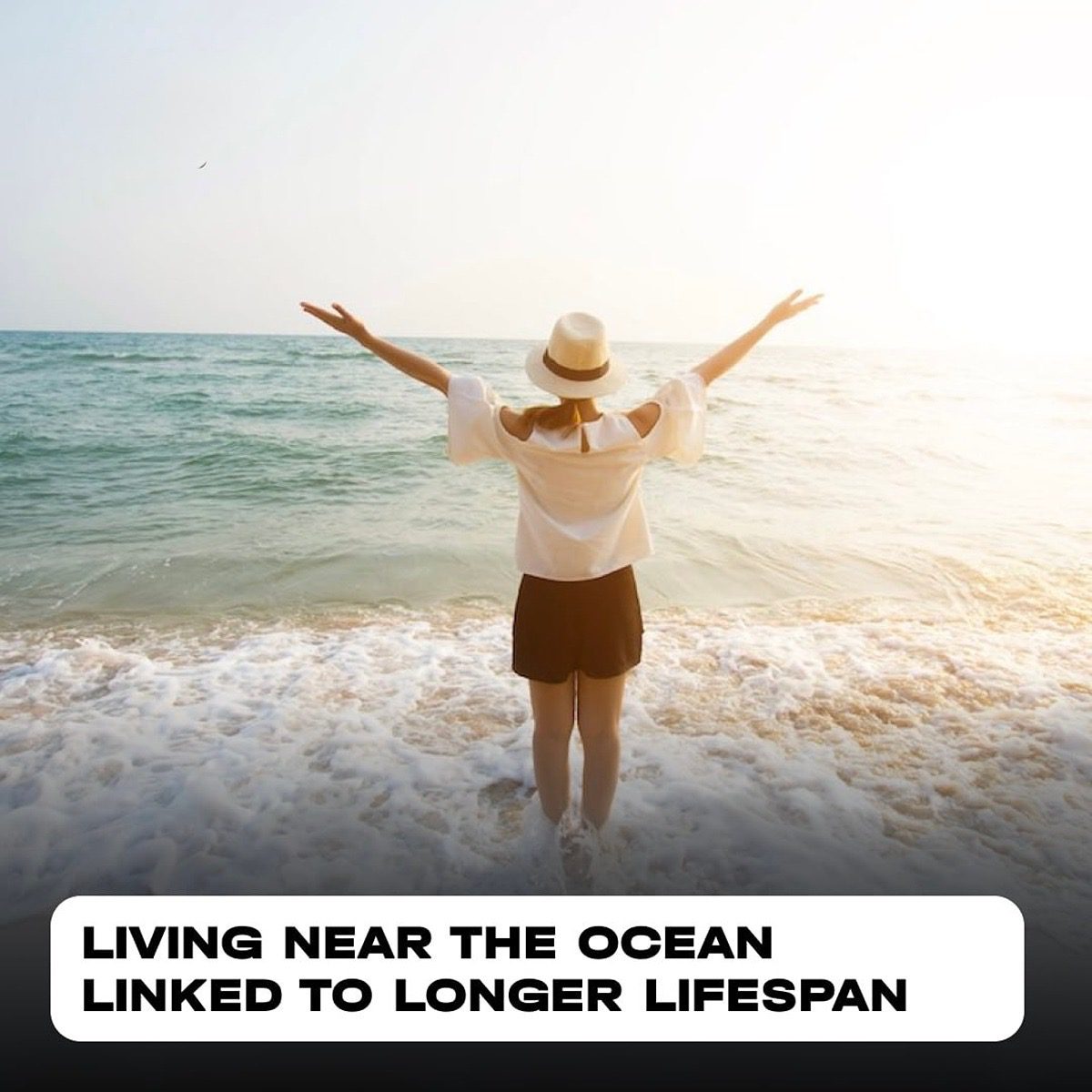I first read about a fascinating Ohio State University study that made me think twice about where I live. The researchers analyzed census data from over 66,000 U.S. neighborhoods and found that people living close to the coast tend to live about a year longer than the national average of 79 years. Remarkably, city residents near large inland lakes or rivers often had slightly shorter lifespans (around 78 years). This clear split – coastal living giving a longevity boost vs. inland urban water having the opposite effect – really surprised me.

As someone who loves the ocean breeze, the results resonate with me. Dr. Jianyong “Jamie” Wu, the lead author of the study, explained that coastal residents were expected to live a year or more longer than the U.S. average. Why might that be? Coastal areas typically enjoy milder climates with far fewer extremely hot days, plus better air quality and plenty of outdoor recreation (beaches, trails, etc.). Seaside cities also tend to have higher incomes and stronger infrastructure, giving people by the sea an edge.
On the flip side, living near inland water in big cities didn’t have the same perks. The study showed urban riversides often come with pollution, poverty, and flood risks. For example, a downtown riverfront can be ringed by industry or highways, undermining air quality. In fact, the researchers found that rural lakeside communities saw a small boost in life expectancy, but that benefit vanished in urban neighborhoods – which tended to be about a year below average. It really underlines that water alone isn’t enough: the overall environment and resources matter.
I dug into what other experts say about this “blue space” effect. Environmental psychologist Dr. Mathew White (University of Exeter) notes water environments improve well-being in several ways: they offer cleaner air and sunshine, encourage physical activity (like beach walks or swimming), and produce a calming sensory experience for our brains. In fact, White’s team found water can reduce stress even more than green parks do. His colleague Dr. Lewis Elliott adds that spending just a couple of hours by the coast each week correlates with noticeably better health. It seems combining sea air with exercise really benefits longevity.
Interestingly, you don’t need a beachfront house to get some of these perks. One study showed that even images of water (like a city fountain or a lake scene) were rated as positively as pictures of green parks. This suggests practical tricks: adding fountains or ponds in a town can mimic some ocean advantages. It gives me hope that city planners can bring “blue space” to us even inland, and that even a quick waterfront visit can help – any dose of water appears better than none when it comes to well-being.
How I Plan to Bring More “Blue” Into My Life
- Visit the coast regularly. I’ve decided to schedule more beach trips and lakeside weekends. Even short seaside getaways can help – research suggests spending about 2 hours a week by the ocean improves health and happiness.
- Explore local water spots. I might not live on the beach, but I have rivers and lakes nearby. I’ll make a habit of walking or biking along our city’s waterfront. Studies indicate that even urban fountains or canals boost mood similar to green parks.
- Stay active outdoors. When I’m by the water—beach or lake—I plan to swim, kayak, or play beach volleyball. Combining exercise with fresh air seems to pay off: the Ohio State team found that more recreation opportunities near coastal areas likely contribute to longer lives.
- Advocate for blue-friendly spaces. I can support adding fountains, waterfront trails or new ponds to bring more blue space into town. Even a well-placed fountain can help reduce stress and improve mood, so I’ll look for community projects that add water features.
- Be climate-smart. While coastal living showed health benefits, I’ll stay aware of long-term challenges. Experts warn that rising sea levels and extreme weather could threaten coastal communities. If I ever consider moving to the shore, I’ll look for places with good flood protection and sustainable planning.
This study is observational, so it doesn’t prove living by the ocean directly causes longer life. Still, it makes me think about how our environment shapes health. I wonder what future research will show – maybe tracking people who move from inland to coast (or vice versa) to see if their health changes. Could similar patterns appear in other countries with different climates? I’m eager to see what’s next in the science.
In the meantime, I’m grateful for every coastal breeze and river walk. Knowing that living near the sea might literally extend my lifespan by about a year gives me extra motivation to make the most of blue spaces. I’ll keep planning those weekend beach trips and enjoying that salt air, hoping it adds a few good years to my life.
